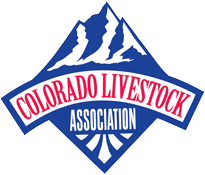Ajay Menon, Dean, College of Agricultural Sciences, Colorado State University
When looking at the grand global challenges facing agriculture, the need to ensure that our food supply is safe, affordable, and sustainable comes to the forefront almost immediately. In the College of Agricultural Sciences at Colorado State University, we have research programs that focus on the continued viability and profitability of Colorado’s diverse agricultural industry, of which livestock and the Colorado Livestock Association figure prominently. We know that agriculture is a significant economic driver in our state, contributing $41 billion to the Colorado economy and employing nearly 173,000 people, according to the Colorado Department of Agriculture.
You don’t need me to tell you that the livestock industry is big business in Colorado, a state that is the third-largest producer of sheep and lambs in the U.S. and has 2.7 million head of cattle. The CDA also notes that approximately 60% of the state’s $7.1 billion in agricultural cash receipts are attributed to livestock. It is only natural that as the state’s land grant university, it is our obligation to provide cutting-edge research, community engagement, and workforce development to support Colorado agriculture.
Dollars and cents are not the only drivers of agriculture here in Colorado or elsewhere. Ensuring the viability of this industry depends on providing food that is both safe and plentiful. Other statistics emphasize the national and global scale of food sustainability and food security concerns. The USDA reports that 48.1 million people lived in food insecure households in 2014, with Colorado ranking near the U.S. average for food insecurity. Globally, the United Nations estimated that 795 million people were chronically undernourished between 2012-2014. Demand for meat proteins will exceed 213 million metric tons by 2020 in developing countries, a number that is more than double what it was just 20 years ago. These are challenges that we must face head-on. And as I look at the great minds and enterprising students across our college, I am reassured that we are doing so every day.
Our meat science faculty members are at the leading edge of innovation in anti-microbial work, work that will help prevent food borne illnesses, ensuring the health of millions of Americans as well as aiding the U.S. economy which loses an estimated $7 million for every E. coli 0157 infection, according to the Centers for Disease Control. Not surprisingly, protecting our food supply is also a national security concern, and we have researchers focused on identifying and preventing bioterrorism across a number of agricultural sectors. We are also utilizing the latest precision technology in our research, employing big data, digital mapping, and drone technology so that the producers we serve can be proactive, not reactive, as they plan for upcoming growing seasons and livestock feeding. Of course, workforce development is essential as we prepare our students to take part in 21st century agriculture and to help educate consumers and policy makers as to where their food comes from. We have a state-of-the-art CoBank Center for Agricultural Education, and we encourage our students to look for industry internships and development programs to enhance the education they receive at CSU.
But we cannot go it alone – we need to hear from industry as to what kinds of research will help advance animal production and will serve consumers, producers and policy-makers. The industry is acutely aware of consumer interests and regulatory pressures that continue to change and develop in ways that impact food production techniques, food labeling initiatives, and public relations campaigns. I would argue that it is essential for the state’s land grant university to be responsive to the needs of industry by providing strong, reliable science as well as making available practitioners who understand how to communicate the pivotal role of agriculture in our society.
Contributing writer, Jason Kosovski, Director of Communications, CSU College of Agricultural Sciences.
